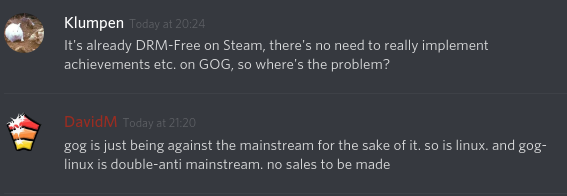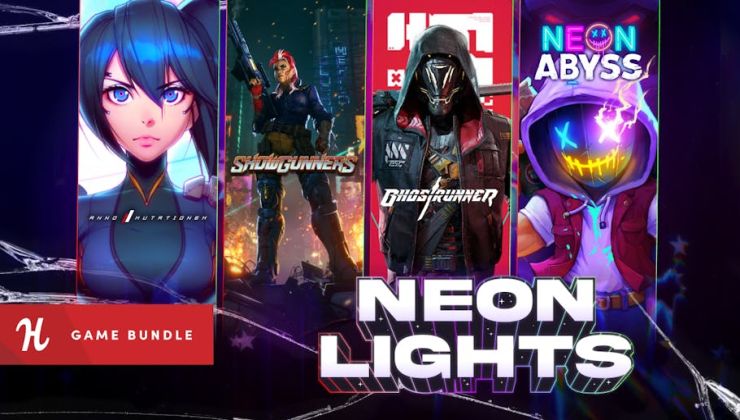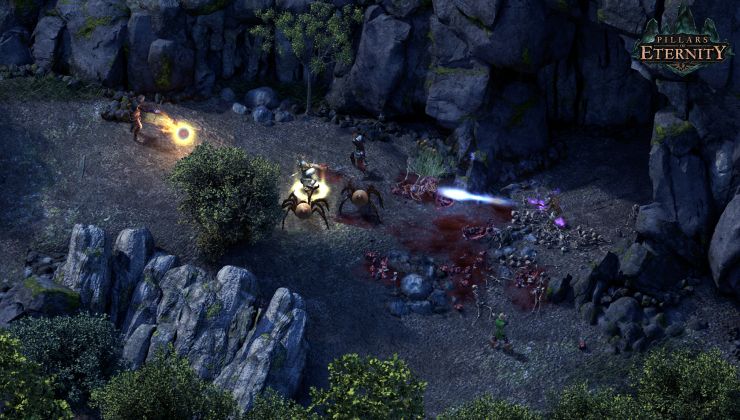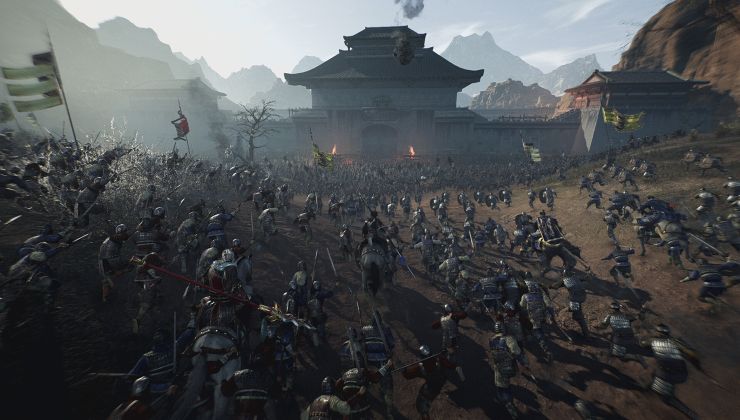Update: The developer did change their mind and it's now on GOG for Linux. Update #2: The developer later pulled both GOG and Linux down.
Original article:
Supraland released for Linux on Steam on July 2nd and it just released on GOG today but it seems the Linux version will not be heading to GOG.
What is Supraland? It's a very highly rated first-person action and puzzle game, inspired by the likes of Zelda, Metroid and Portal. It's popular, with an "Overwhelmingly Positive" rating on Steam from over two thousands user reviews and from my time spent in the demo, I can see why as it was pretty sweet.
Speaking in their official Discord server, users questioned the developer to find out about a possible Linux release on GOG, since it's only available for Windows there currently. The reply was a little…unexpected:
Their further comments on it were a little more reasonable and understandable, mostly mentioning lower sales on Linux and again on GOG. Even so, that's a pretty naive and hostile attitude to take towards a store (GOG) and platform (Linux) both of which you only just started supporting.
After speaking to the developer myself, they said it was taken out of context (not that I see how, I followed the whole conversation personally). In reply to the same user who also posted this information on GOG, the developer said:
With the "for the sake of it" comment I was refering to a case of "I will only buy on gog because I want it DRM-free" but it IS DRM-free on Steam since forever. This ignorance and "for the sake of it" attitude made me a little angry.
I have not a single bad thought about gog.
They moved onto saying the Linux version performs poorly compared to the Windows version, saying it's better in Proton (which they also said slightly differently on the GOG forum and here too) so they don't want to give "a version that is inferior for reasons I cannot change". So, they're basically telling people on GOG to use Wine/Proton.
So for now, if you want to play the Linux version of Supraland, it's sadly Steam only. Although, going by their other comments it seems they're not confident on actually keeping the Linux version up.
Supra Games are also currently crowdfunding for Supraland 2 on Kickstarter, which is confirmed to be coming to Linux as well.
Ok. There's a heck of a lot of registry hacking involved, not to mention that the thing is either incomplete, or a fingerprinted backup, neither of which would work the same way.
It's not that difficult if you use steamcmd client. Of course having a UI makes everything simpler, but my point is that you can get the same DRM-free product from GOG or Steam if the game dev wants.
For the curious people out there: https://developer.valvesoftware.com/wiki/SteamCMD#Cross-Platform_Installation
Talking about DRM... There was an update to Stadia's FAQ page:It's Google though. So does them deciding it's not working out and no longer supporting the whole service even count as an "unforeseen" circumstance?
https://support.google.com/stadia/answer/9338946?hl=en
From the FAQ:
"What happens to a game I bought if the publisher stops supporting Stadia in the future? Can I still play the game?
Yes. Once you purchase the game, you own the right to play it. In the future, it is possible that some games may no longer be available for new purchases, but existing players will still be able to play the game. Outside of unforeseen circumstances, Stadia will aim to keep any previously purchased title available for gameplay."
Similar to Steam, it seems.
From this perspective... :D
Edit: But dropping Stadia support, once players will have poured money into it, feels like saying that they'd consider dropping Google Play's support... Highly doubtful, imo.
Last edited by Mohandevir on 10 Jul 2019 at 8:18 pm UTC
... For example, if you and the person you shared with decide to play the same game - one of you's kicked out. Fair but it doesn't happen on GOG.
You do realize that's not legal though, right? Just because you bought DRM-free game doesn't mean you can just copy it to your buddy and play it together. So I am not sure what is your point here,... that GOG let´s you break the law? At that point just let your friend torrent it, it will save you the whole dilemma. What Steam does might be nuisance, but also the correct way. In true sense of the term, yes... kicking you off is DRM. Family Share manages the rights to your license and won't let you use one license by two people. I am just not so sure that it harms your rights, because you have no right to use the license by multiple people at once to begin with.
It's legal, but close to something that isn't.
The Big distinction is... Let's say I have a library of two games, Deus Ex and System Shock. My wife, in the same house wants to play System shock, while I at the same time want to play Deus Ex. Without breach of license, I can (according to Steam) temporarily transfer the license given to me, for my wife to play System Shock. I didn't however transfer or duplicate the license on Deus Ex. So as a result in theory, I should be allowed to play one game, while she plays the other, the platfrom being irrelevant to our discussion. However Steam interjects and states that I can only share the whole library.
On that note, the license to play by law, is exclusive (i.e. only one person at a time can do it, even then with concessions for things like split-screen multiplayer) but also transferrable (which is why what Steam allows you to do with family sharing, and what used game salesmen are doing routinely). Thus my example is in fact legal, and what I've described is not, in fact, piracy, but me exercising the transferrability of the license. The distribution platform can implement ways of enforcing the terms of the license agreement, by means of digital rights management software, which can revoke or otherwise impede the infringement of the copyright holders' rights.
Now important info: Circumventing DRM is a crime, and should in theory be punished without regard to whether the copyright holder presses charges. Breaching the EULA, is not, however. The worst you might reasonably be punished with, is revocation of all licenses provided by that copyright holder (i.e. you will lose all games licensed by one publisher, not all your games on Steam, since you didn't breach the agreements with those publishers. This slight distinction is why you can be jailed for hosting cracked games, or cracking them, but not for ledning your friend a copy of a physical secuROM protected disk + the activation key. The latter is not a criminal offence without tangible loss for the copyright holder. (you can't have a law preventing people from giving each other gifts or sharing physical commodities).
In this instance I do not pirate the game! I temporarily transfer the game to the library of my spouse, and then back.
Sure, technically you could argue that it's not in the interests of the copyright holder... Neither is letting me replay the game, or take more/less time playing through it. Restricting my right to do so, without providing me a full refund, is in fact a violation of MY rights.
So. While copying the game to my friend's computer while playing that same game at the same time, is in fact a violation of the exclusivity clause of both the EULA and the DMCA = Piracy. Bad.
Sharing the game, while I play something else, in fact, isn't. GOG.com doesn't restrict me from doing either. So, I don't say that I prefer GOG.com because it allows me to pirate the games (it doesn't, it simply doesn't infringe on my other rights to prevent me from doing so), but because it errs on the side of my rights. DRM free on Steam is, save for the negligible performance impact, functionally the same as non-DRM-free on Steam.
Just because YOU haven't put DRM in your game, by publishing on Steam you're restricting my ability to share it. For example, I can lend a GOG game to a friend. He can play the game at the same time as I am playing something else. I can't do that on Steam.
Not really judging or trying to engage, as I'm almost 40 and I've done a fair amount of this in the past myself (not anymore).....but this is textbook piracy. This probably ain't the best argument to make.
I made a longer post replying to someone else, but I would argue that this isn't piracy.
Legally speaking, piracy is violation of the exclusivity of the licensed granted by the copyright owner. I don't violate the exclusivity, but exercise transferrability: I can transfer for any reason the license towards the Intellectual property licensed to me under the DMCA. In other words, as long as the two of us don't play the same game, we should be fine. The EULA can further restrict my rights, but these aren't technically enforced by the DMCA. Technically, when Steam revokes my right to make use of two licenses at the same time, it breaches some of my rights, but I waive those when I sign the Steam EULA, so I can't sue Valve. That being said, this is only protected by the EULA, nobody can sue me for family sharing my Steam library and playing other games on e.g. GOG.
But you are right, this is dangerously close to piracy, thereby not making it a good argument.
This is just a PR disaster. ...
Yes, a disaster that affects about 0,8% of his customers. Wow :O
It's Google though. So does them deciding it's not working out and no longer supporting the whole service even count as an "unforeseen" circumstance?
It can be both, i.e. expected and planned or unexpected and abrupt shutdown of the service. In practice it doesn't matter. Since they don't provide downloads, such purchases aren't backed by anything. And worse part is, such games won't be available from pirate sources to compensate for service shutting down either. So it's a bad investment of money for anyone who cares about games preservation.
This is just a PR disaster. ...
Yes, a disaster that affects about 0,8% of his customers. Wow :O
Plus all the savvy dual booters, pundits, Windows users who'd like to see Linux do well, DRM-free advocates... they all know a PR disaster when they see one. Some won't care, and maybe it won't affect his bottom line. But it should have been handled trivially, instead of this absolute train wreck.
And I've just caught up with the comments. Wow. People really don't know what DRM is, huh? It's not about how easy it is to install. It's not about legality. It's not about "needing an account" to download. It's not about EULAs or the police kicking your door down.
It's literally renting vs owning. Steam's model is primarily to rent, but there's lots of stuff on Steam you can own, and the fact that Valve doesn't make it obvious that this is the case, or make it easy to take advantage of doesn't stop it being the case.
It's literally renting vs owning.
No, DRM is about restrictions. I.e. whether you are restricted in your usage after the purchase or not. Steam requires you to use the client to install the game. I.e. they don't sanction backups according to their terms of usage (except for using their own backup method, which again involves their client and etc.).
Whether they enforce it or not is already secondary. DRM-free store should not stop you from legally making backups. And they provide downloadable packages for such use case. DRMed stores quite explicitly avoid that, because they don't want you to back anything up.
Last edited by Shmerl on 10 Jul 2019 at 10:10 pm UTC
No, DRM is about restrictions. I.e. whether you are restricted in your usage after the purchase or not. Steam requires you to use the client to install the game. I.e. they don't sanction backups according to their terms of usage (except for using their own backup method, which again involves their client and etc.).
Those restrictions aren't present in this game. i.e. it's a drm-free game.
Whether they enforce it or not is already secondary. DRM-free store should not stop you from legally making backups. And they provide downloadable packages for such use case. DRMed stores quite explicitly avoid that, because they don't want you to back anything up.
You give a black & white definition for the store. Steam doesn't enforce anything by itself, each developers has the option to do such thing, so it's kinda difficult to say that it's a DRMed store under your definition.
Those restrictions aren't present in this game. i.e. it's a drm-free game.
Restrictions are present in their TOS. So developers telling you to ignore it doesn't change that. Steam doesn't want you to make backups. They just not always try to actively prevent it. That's not the same as DRM-free store which allows it.
Last edited by Shmerl on 11 Jul 2019 at 4:14 am UTC
It's literally renting vs owning.
No, DRM is about restrictions. I.e. whether you are restricted in your usage after the purchase or not. Steam requires you to use the client to install the game. I.e. they don't sanction backups according to their terms of usage (except for using their own backup method, which again involves their client and etc.).
Whether they enforce it or not is already secondary. DRM-free store should not stop you from legally making backups. And they provide downloadable packages for such use case. DRMed stores quite explicitly avoid that, because they don't want you to back anything up.
I will argue that DRM are only the software restrictions that enforce this policy. If you are technically able to make back-ups, but are not allowed to do it by an agreement, it is not DRM. For example: copy protection in a disk is DRM; a label telling "it's illegal to copy this disk" is not. A law that prevents you from uploading a video file or a DRM takedown aren't DRM; encrypted media extensions are DRM.
But no, it's not renting vs owning, not even figuratively. It is about enforcing restrictions through invasive means, regardless of whether it is either "rented or owned" (neither is technically correct).
I will argue that DRM are only the software restrictions that enforce this policy. If you are technically able to make back-ups, but are not allowed to do it by an agreement, it is not DRM.
It's not DRM from the standpoint of "breaking measures" i.e. violating anti-circumvention. But it's DRM from the standpoint of placing a restriction. For the lack of better term, DRM-free implies no such restrictions, and that means legal ways of backing up your purchases, not ones that violate the terms of use, while technically not breaking any software barriers. I.e. saying that game is DRM-free but to back it up you need to violate the TOS is not helpful. I don't call such stores DRM-free.
Last edited by Shmerl on 11 Jul 2019 at 5:08 am UTC
Indeed, I would want to claim that the law or the label constitute ARM (Analog Rights Management).It's literally renting vs owning.
No, DRM is about restrictions. I.e. whether you are restricted in your usage after the purchase or not. Steam requires you to use the client to install the game. I.e. they don't sanction backups according to their terms of usage (except for using their own backup method, which again involves their client and etc.).
Whether they enforce it or not is already secondary. DRM-free store should not stop you from legally making backups. And they provide downloadable packages for such use case. DRMed stores quite explicitly avoid that, because they don't want you to back anything up.
I will argue that DRM are only the software restrictions that enforce this policy. If you are technically able to make back-ups, but are not allowed to do it by an agreement, it is not DRM. For example: copy protection in a disk is DRM; a label telling "it's illegal to copy this disk" is not. A law that prevents you from uploading a video file or a DRM takedown aren't DRM; encrypted media extensions are DRM.
Your argument is based on an eventuality that will simply never happen. You think police will kick down your door and arrest you for using a copy of a game you bought some time ago, but no longer "own"? Come on!What will never happen? That you close your account? That it gets closed? May be.
I'm just talking about legality issues. Some people care about that. You obviously not. That's your thing. It doesn't make my argument invalid, Steam is restricting the use of the software after having 'sold' it. This is DRM. You can ignore it, but neither deny it nor force others to accept it.
Valve would have a very hard hard time arguing in court that you violate any laws by using a DRM-free game without a Steam account since Valve does not hold the copyright to said game. AFAIK all they could do is see this as you violating the TOS and thus they are eligible to terminate your Steam account which is moot considering the basis of the question.
Actually the exact same thing should possibly be attached to the DRM games that Valve sells through Steam, even though they claim that you only license the game and not own it in their TOS they still don't hold the copyright to the game (only the publisher does) so their legal reach should not extend more than that they can terminate your account due to you violating the TOS. This however might play differently depending upon which country you live in and can ultimately only be solved once such a case is ever brought to court.
AKA if you terminate your Steam account and still play say Mass Effect 2 then only EA can bring you to court for violating copyright, not Valve.
Those restrictions aren't present in this game. i.e. it's a drm-free game.
Restrictions are present in their TOS. So developers telling you to ignore it doesn't change that. Steam doesn't want you to make backups. They just not always try to actively prevent it. That's not the same as DRM-free store which allows it.
In the same way as restrictions are present in GOG TOS:
3.3 Your GOG account and GOG content are personal to you and cannot be shared with, sold, gifted or transferred to anyone else. Your access to and use of them is subject to GOG’s rules which are set out here, as updated or amended when necessary.
So, based on your definition, should we still call GOG a DRM-free store?
More over, this scenario is worst with games that requires GOG services in order to have multiplayer content. I mean, GOG in the same way as steam can terminate your account which in that case would limit access to content of games you purchased.
Sorry, but we're playing the lawyers here and it has no sense. Being so strict with your rules will eventually force you to even close your current GOL user account... I can understand that you prefer GOG, but is completely stupid to keep saying that the only way to get "fully DRM-free" content is by using GOG.
but is completely stupid to keep saying that the only way to get "fully DRM-free" content is by using GOG.
That depends on how you look at it. Saying that the only way to get DRM-free content is by using GOG is indeed not true.
However, saying that the only way to keep getting DRM-free content is supporting GOG is pretty reasonable, since providing DRM-free content is literally GOG's mission. No other store made such effort to provide DRM-free content as GOG. So if I, as a user, want to get DRM-free content, using GOG is indeed the way to do so.
That depends on how you look at it. Saying that the only way to get DRM-free content is by using GOG is indeed not true.
However, saying that the only way to keep getting DRM-free content is supporting GOG is pretty reasonable, since providing DRM-free content is literally GOG's mission. No other store made such effort to provide DRM-free content as GOG. So if I, as a user, want to get DRM-free content, using GOG is indeed the way to do so.
Of course, there is "for the cause" argument too. But nobody gave that argument, we were debating about DRM-free content.
Again, is all about a store preference in the end.
That depends on how you look at it. Saying that the only way to get DRM-free content is by using GOG is indeed not true.
However, saying that the only way to keep getting DRM-free content is supporting GOG is pretty reasonable, since providing DRM-free content is literally GOG's mission. No other store made such effort to provide DRM-free content as GOG. So if I, as a user, want to get DRM-free content, using GOG is indeed the way to do so.
Of course, there is "for the cause" argument too. But nobody gave that argument, we were debating about DRM-free content.
Again, is all about a store preference in the end.
I know, I just wanted to point it out, since I felt it is relevant to the discussion.
In the same way as restrictions are present in GOG TOS:
Nope. GOG only has regular copyright restrictions specified. I.e. you aren't supposed to copy what you bought to others. That's perfectly expected. GOG however allows you personal backups, which is one of the main points of DRM-free. So not the same at all.
Last edited by Shmerl on 11 Jul 2019 at 3:05 pm UTC
Nope. GOG only has regular copyright restrictions specified. I.e. you aren't supposed to copy what you bought to others. That's perfectly expected. GOG however allows you personal backups, which is one of the main points of DRM-free. So not the same at all.
And Steam also allows backups (in fact, they mention two ways in their docs). More over, if your game is DRM-free you can move your backup and run it anywhere without the Steam client (which is the other DRM software you always mention on Steam). Not sure where you want to get at this point...












 How to set, change and reset your SteamOS / Steam Deck desktop sudo password
How to set, change and reset your SteamOS / Steam Deck desktop sudo password How to set up Decky Loader on Steam Deck / SteamOS for easy plugins
How to set up Decky Loader on Steam Deck / SteamOS for easy plugins
See more from me